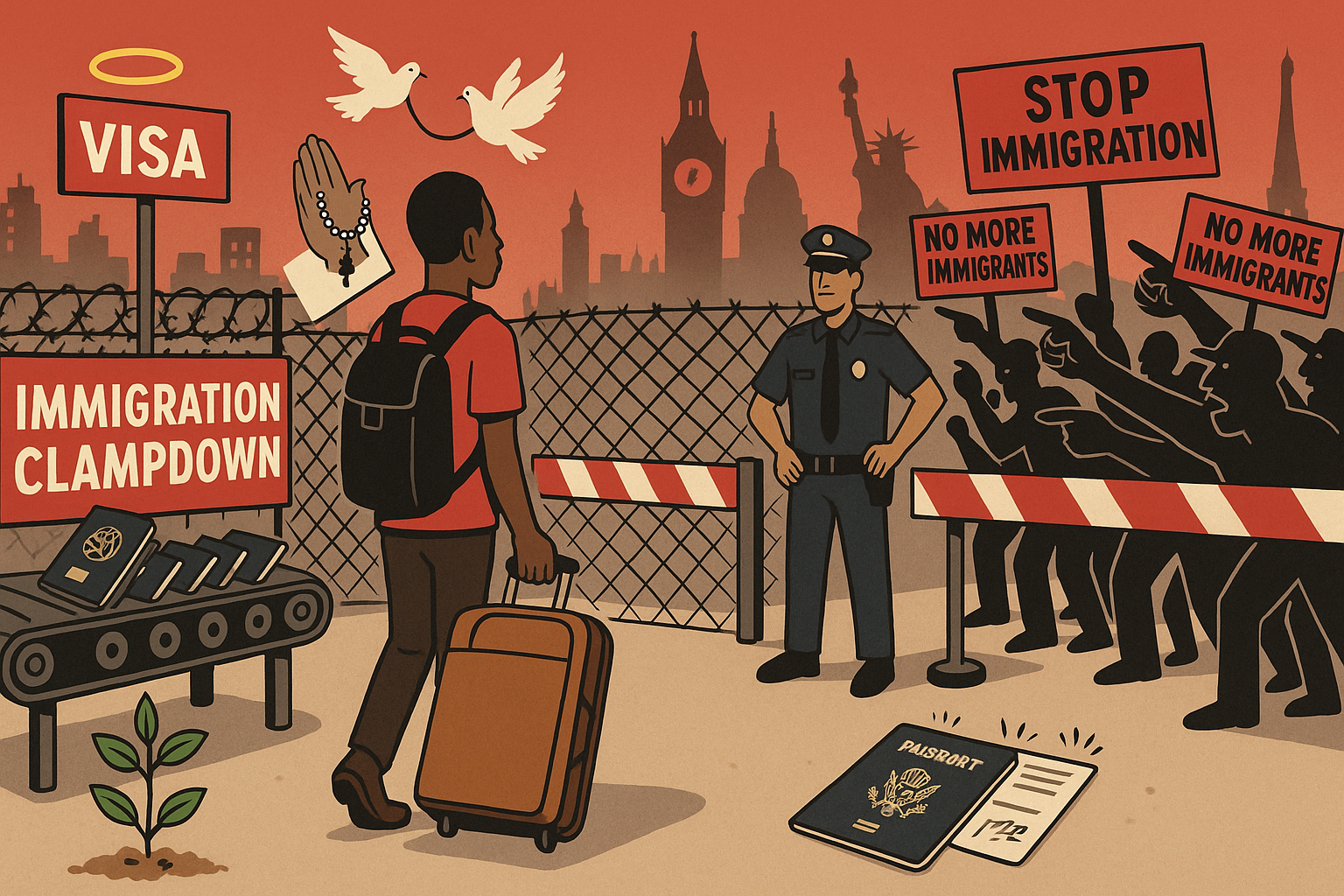Written by: Lukman Yusuf
Growing up, almost every one of my friends had that relative abroad who was assumed to be wealthy yet barely sent money home, or who was known to always bring back fancy gifts whenever he visited Nigeria for the holidays. Those fond childhood stories now reflect the obvious reality of our society. That uncle is now me, my very dear friends, the neighbor next door, and that bookish student on campus known for having very good grades. No one is spared from this coming-of-age journey; the pursuit of success and the search for greener pastures.
A substantial number of Africans believe that stepping onto “the white man’s” soil translates into immediate success and a life of luxury and eternal enjoyment. These beliefs are widely shared by both the educated and the uneducated and have attracted a ritual of spiritual attribution, as you will find people crediting the process of obtaining visas to God’s miracle and the failure to obtain one to a spiritual shortcoming or attack.
While many Africans, particularly those of Nigerian descent have achieved tremendous success in their endeavours, whether in business, sports, or education, the Western countries that once supported globalisation and immigration are now turning their backs, betraying the hopes of these ambitious Africans. Immigration has become one of the most sensitive and polarised topics in many of the world’s most advanced countries, with uprisings witnessed multiple times in France, the UK, the US, Canada, and Germany—most of which are very popular destinations.
The rise of far-right parties and populist groups has further fuelled this hostility to immigration. Even though Africans make up just 14% of the global migrant population—in contrast to 41% from Asia and 24% from Europe; sentiments from recent protests in Europe and the UK suggest they are among the most disliked groups. Yet, with rising inflation and unemployment in many African countries, young people are saddled with the tough choice of staying in their countries under mostly corrupt and nonchalant leaders, or striving for success in lands filled with frustrated and aggravated youths pointing fingers at immigration as the cause of their misery.
With over 60% of the African population being youths, the continent holds great potential and deserves better than being left at the mercy of the likes of the Christian Nationalists in the USA, Advance UK in the United Kingdom led by Tommy Robinson, or the National Rally in France. However, being valuable as a continent or country doesn’t rest solely on the potential of the people or the abundance of resources, as history shows. The need for intentional, patriotic, and competent leadership cannot be overstated.
Unfortunately, Africa is far from this dream of having majority good leadership, especially across much of Sub-Saharan Africa, leading to numerous conversations on how this curse can be reversed. Sadly, the predicament of Africans isn’t just a replay of bad leadership; it is also the product of a malfunctioning mindset long bred by our societies and communities; a mindset of inferiority, selfishness, negligence, and lack of patriotism. This is very evident in the leaders who emerge from these societies—leaders who care little about the very people who elected them into power.
As most of the world’s advanced countries work tirelessly to (satirically) crush the dreams of African immigrants through clampdowns on both legal and illegal immigration, I hope that young Africans like you and I will look beyond the promise of a master’s or PhD scholarship, which offers mouth-watering exit routes to Western countries. I hope we will spend more time looking inward, helping to solve the problems destroying the very fabric of our societies. I hope that our voices as youths will become more united around the common purpose of good and less divided by the favourite tools (religion and ethnicity) of our worst politicians. I hope that we will be good ambassadors of our respective countries and strive to promote their image rather than soil it further. I hope that those of us abroad will not totally neglect our countries and will one day attempt to replicate the positivity we have witnessed in the Western countries where we have lived.
As I pen down these hopes and wishes, I am reminded of the saying: “If wishes were horses, even beggars would ride.” At the same time, I ask myself: if wishes were horses and could take us from point 0 to point 1, why not ride them? Why wait until we become beggars—if we are not already? The tables have turned, and the reality has changed; using the same playbook will only keep us at the mercy of our former colonial masters. Dear young Africans, let’s face the new reality — We are no longer welcomed abroad.
Reference:
African Migration Trends to Watch in 2023: https://africacenter.org/spotlight/african-migration-trends-to-watch-in-2023/



